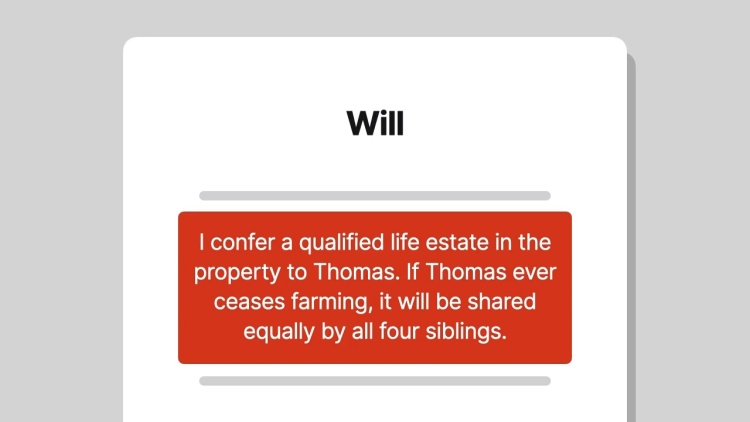Hahn v. Hagar
New York Supreme Court, Appellate Division
60 N.Y.S.3d 49 (2017)

- Written by Eric Cervone, LLM
Facts
When Edna Hahn died, she owned a farm that had been in her family for several hundred years. Edna’s will conferred a qualified life estate in the property to her son, Thomas Hahn, Jr. The will stated that if Thomas ceased farming on the property, rights to the property would then be shared equally between Thomas and his three siblings. Several years after Edna’s death, Thomas and two of his siblings (plaintiffs) became interested in permanently preserving the property as farmland and restricting its future development by selling the property’s development rights. The fourth sibling, Johanne Hagar (defendant), was unwilling to sell her share of the development rights. Hagar proposed carving out a piece of the property for her so the other siblings could use the land as they saw fit, but the siblings rejected this offer. Hagar’s siblings brought suit, claiming that under state law, they were entitled to sell their interest in real property, including the farm’s development rights. Hagar testified that she believed her siblings’ request for her to authorize a sale of the development rights was contrary to their mother’s will. The parties agreed that a sale of development rights meant that the owners of the rights agreed to place restrictions on the property limiting the density of development. The lower court ruled that development rights did not constitute real property or a part of real property. Thus, according to the court, Thomas and the two siblings did not have the authority to sell the farm’s development rights. Thomas and the two siblings appealed.
Rule of Law
Issue
Holding and Reasoning (Connolly, J.)
What to do next…
Here's why 907,000 law students have relied on our case briefs:
- Written by law professors and practitioners, not other law students. 47,100 briefs, keyed to 996 casebooks. Top-notch customer support.
- The right amount of information, includes the facts, issues, rule of law, holding and reasoning, and any concurrences and dissents.
- Access in your classes, works on your mobile and tablet. Massive library of related video lessons and high quality multiple-choice questions.
- Easy to use, uniform format for every case brief. Written in plain English, not in legalese. Our briefs summarize and simplify; they don’t just repeat the court’s language.





